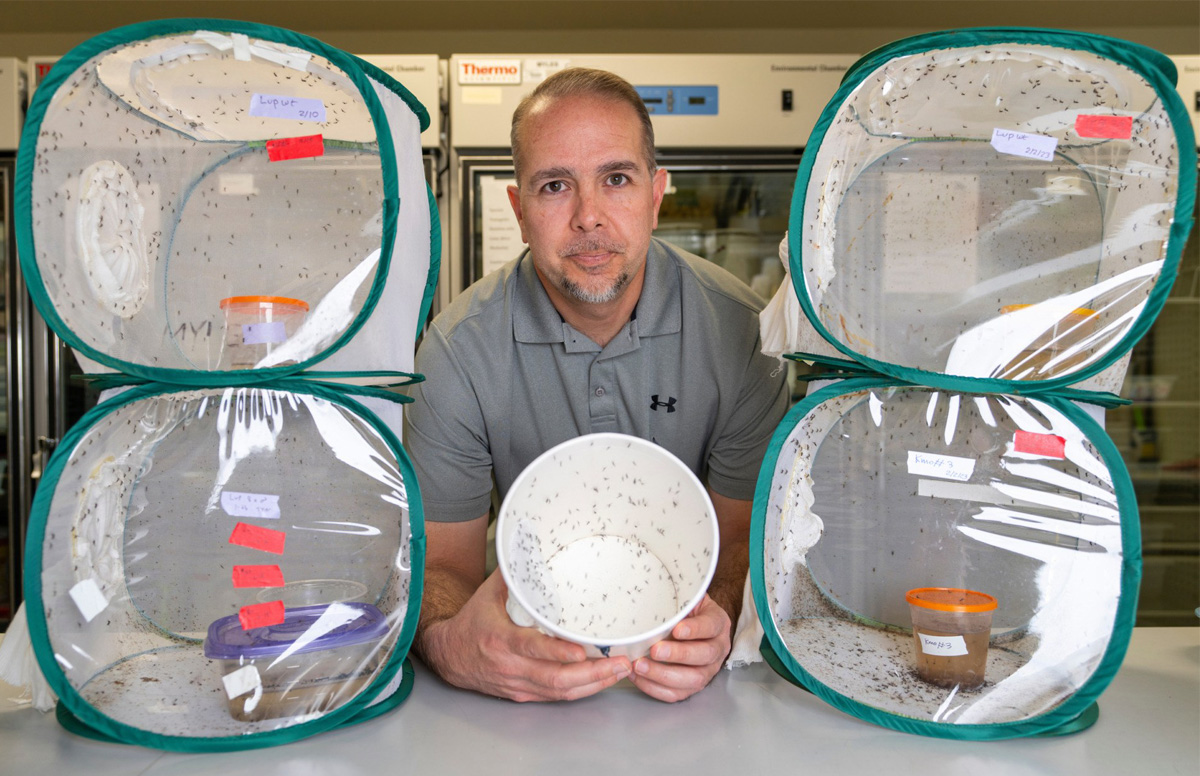
Scientists Disable Protective Gene In Mosquitoes Using CRISPR-Cas9
March 22, 2023| |
Texas A&M AgriLife Research scientists have successfully disabled the immune pathways that protect mosquitoes from human pathogens, including West Nile, Zika, and dengue viruses, using CRISPR-Cas9 technology.
The research team led by Kevin Myles, professor of entomology at the Texas A&M University College of Agriculture and Life Sciences, said the findings could potentially be used to control the transmission of many different vector-borne diseases to humans and animals.
Myles' team used CRISPR-Cas9 to knock out a key gene involved in the antiviral immune response of Aedes aegypti mosquitoes. Their research shows that A. aegypti mosquitoes become acutely susceptible to disease when their protective immune pathway is disabled. This discovery provides new insight into the ecological and evolutionary interactions between mosquitoes and the pathogens they transmit to humans and animals.
For more details, read the article in Texas A&M Today.
| |
Biotech Updates is a weekly newsletter of ISAAA, a not-for-profit organization. It is distributed for free to over 22,000 subscribers worldwide to inform them about the key developments in biosciences, especially in biotechnology. Your support will help us in our mission to feed the world with knowledge. You can help by donating as little as $10.
-
See more articles:
-
Gene Editing Supplement (March 22, 2023)
-
Research and Tools
- Startup Develops Better-tasting Yellow Peas Using CRISPR
- Gene Editing Technology to Fight Corn Disease
- Growing Crops on Mars Possible With Gene Editing
- Improved Editing through CRISPR-targeted Transposable Element Insertion
- Scientists Disable Protective Gene In Mosquitoes Using CRISPR-Cas9
- Gene Knockout Produces “Gentle” Mackerel
-
Read the latest: - Biotech Updates (February 18, 2026)
- Gene Editing Supplement (January 28, 2026)
- Gene Drive Supplement (February 22, 2023)
-
Subscribe to BU: - Share
- Tweet

